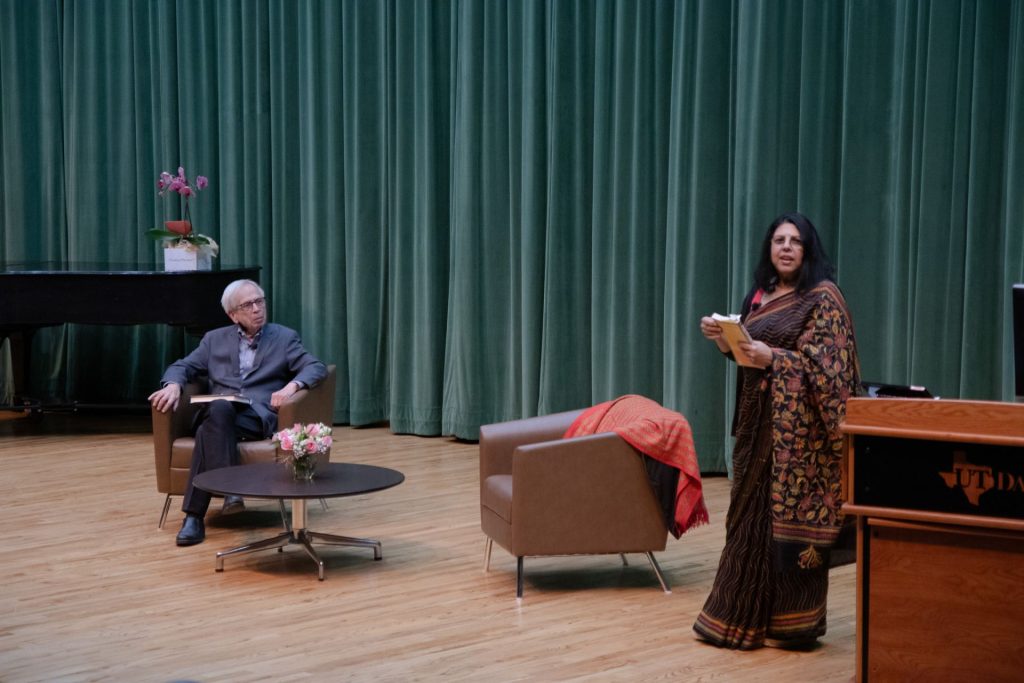
The Harry W. Bass Jr. School of Arts, Humanities, & Technology at The University of Texas at Dallas and the University’s Center for Asian Studies (CAS) hosted the acclaimed 21st Century Asian American novelist and poet Dr. Chitra Banerjee Divakaruni, Betty and Gene McDavid Professor of Writing at the University of Houston Creative Writing Program for a lecture on India’s turbulent struggle for independence.
Dr. Divakaruni, who delivered the inaugural Carmen R. and Joseph G. Schneidler Lecture on Asian Studies, began her talk with a riveting discussion on the relevance of and increasing need for Asian Studies in higher education. She delved into the writing process of Independence, her most recent work of historical fiction, where she vividly narrates the hardships endured by Indian nationals who strove to overcome British oppression.
“I feel like there’s a real need, when we are so divided as a nation, to have a book that shows the importance of unity; the importance of overcoming what we perceive as differences,” Dr. Divakaruni said. “Differences of language. Differences of culture. Differences of class and caste. Differences in ideology. This is such an important moment for us to see what brings us together and really not focus on the ways which we can make our differences tear us apart. Differences themselves do not tear people apart. It’s what we do with them that tears people apart.”
The book tells the experiences of three teenage sisters from a rural village on India’s eastern border as they navigate through the partition of British India in 1947. When writing Independence, Dr. Divakaruni aimed to highlight the story of Bengal’s people during the partition and independence, a topic she noticed was often overlooked in English literature, she said.
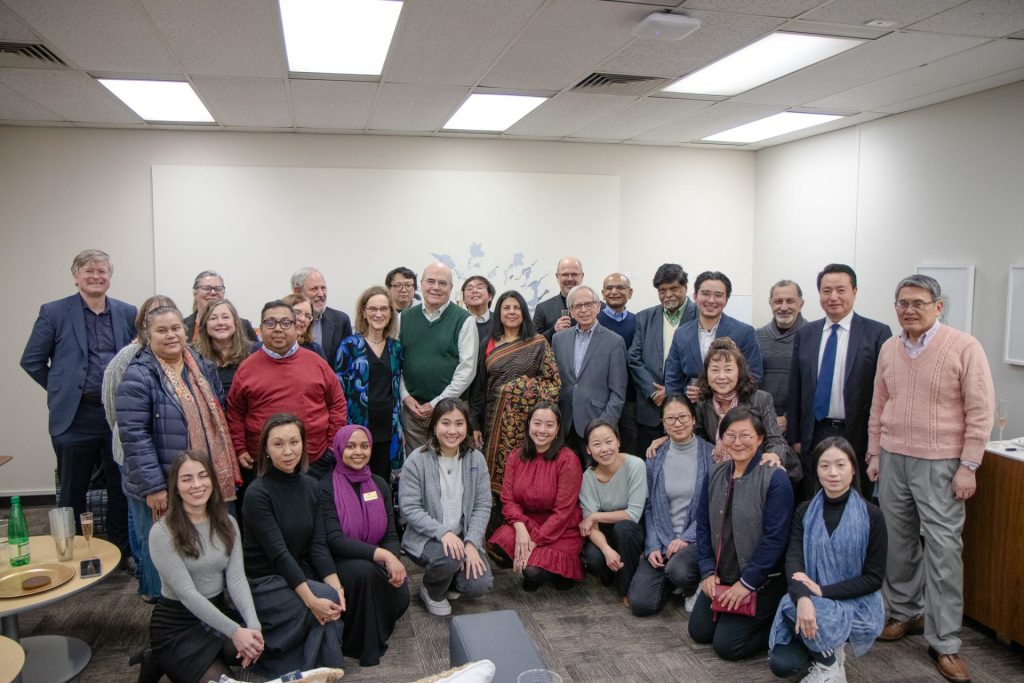
“People forget that, at this time, when the British divided India into three, there was another border and that was on the eastern side in Bengal, which is where I come from,” Dr. Divakaruni said. “My mother had told me stories. My grandfather had told me stories. They had lived through independence. They had lived through partition. They had been in Kolkata, where wonderful and terrible things were happening. Where there were great and inspiring incidents and terrifying massacres going on. I wanted to capture as much as I could in this book. It is fictional but is based on a lot of true stories.”
Stefanie Schneidler and Jeff Robinson established this lecture series to honor the memory of Stefanie’s beloved parents, Carmen and Joseph Schneidler.
“We hope that this series will complement the Anlin Ku Visiting Artist and Scholars Program that began in 2013,” Robinson said. “The Ku Program was named after Stefanie’s Godmother, Anlin.”
“Anlin and her husband, Dr. PM Ku, were part of our family and shared my parents’ passion for the arts, culture and history of Asia.” Schneidler added. “My parents would have enjoyed Dr. Divakaruni’s lecture and appreciated her charm, candor and sense of humor. We have been her fans since the publication of Sister of My Heart. She is such a brilliant, luminous voice in the literary world. We are honored to be part of the Center for Asian Studies and of the UTD family.”
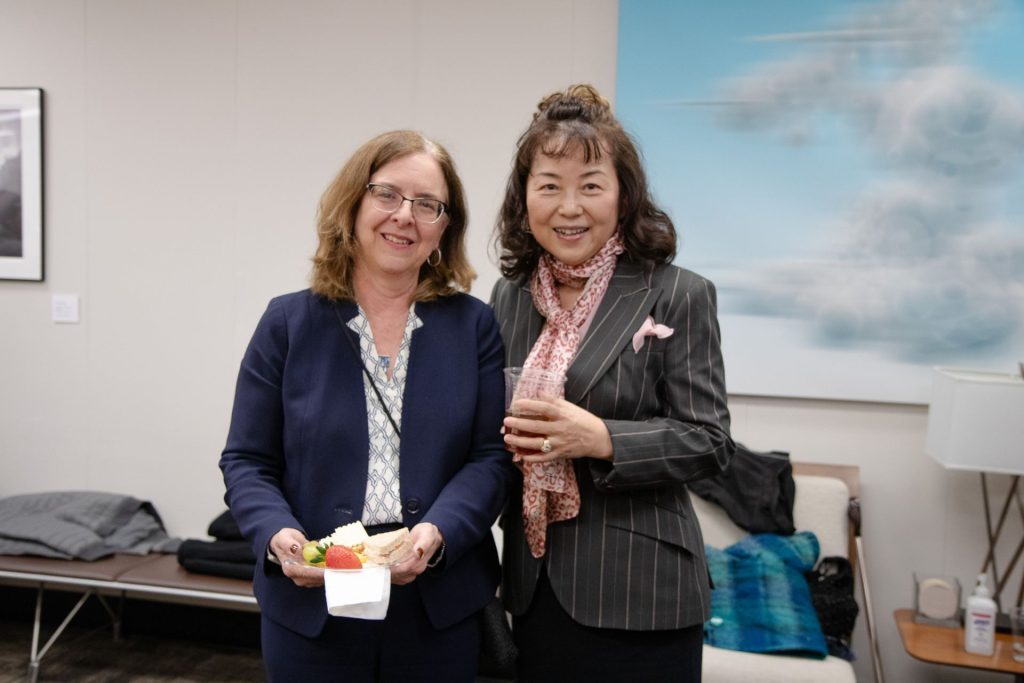
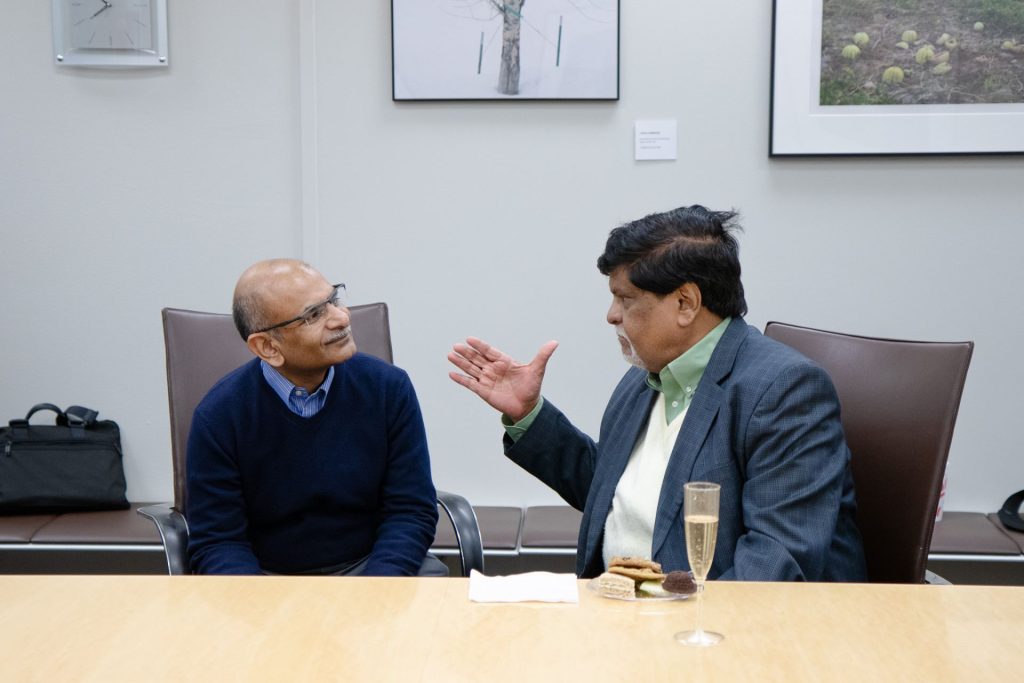
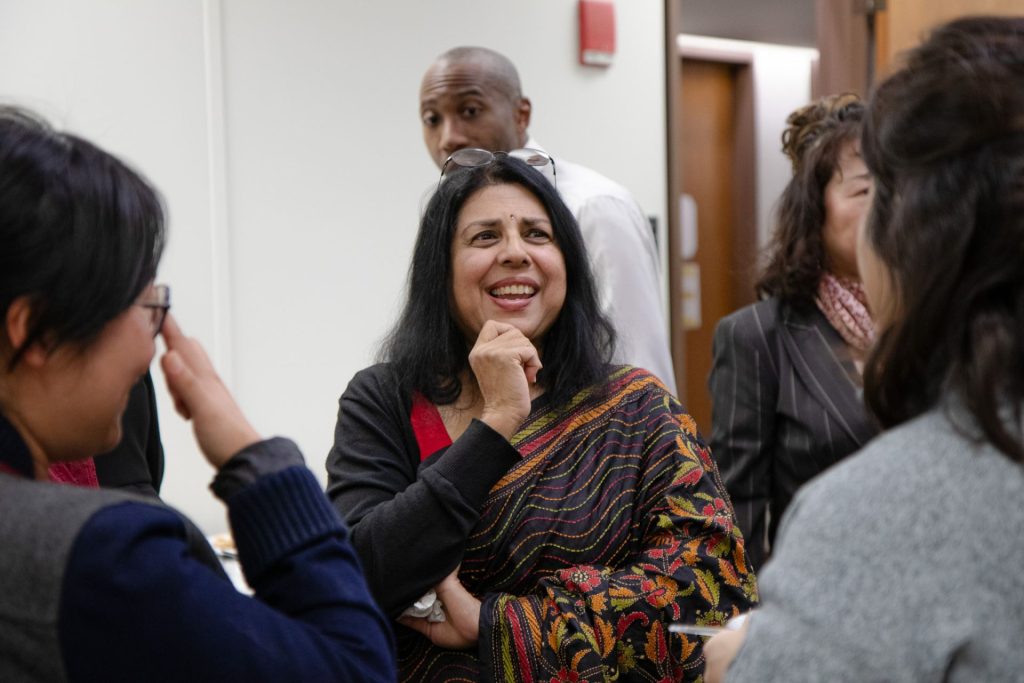
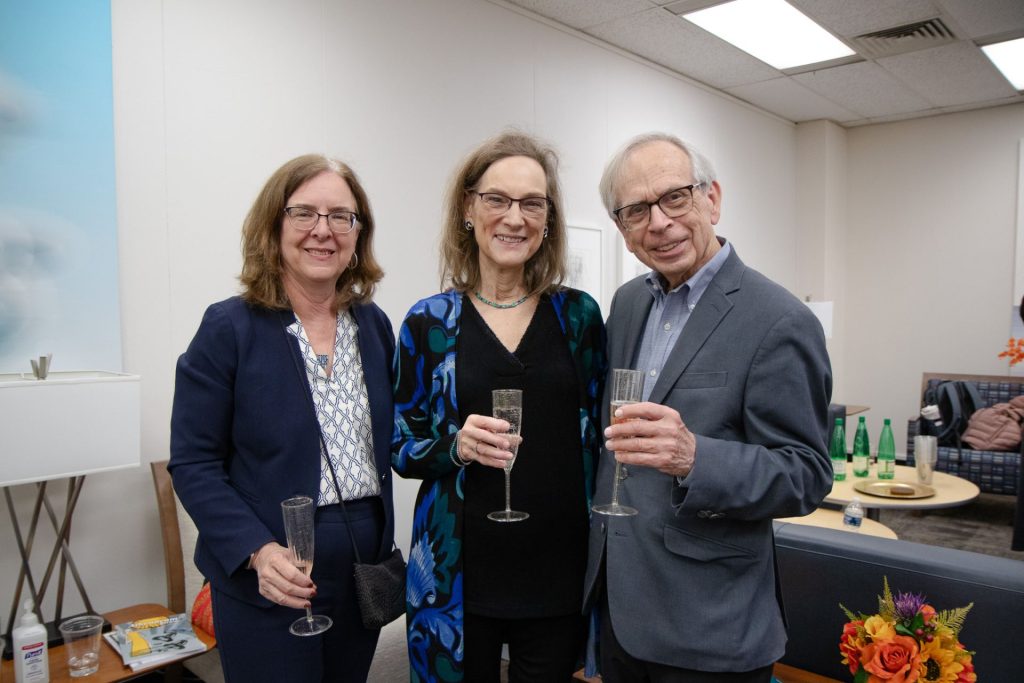
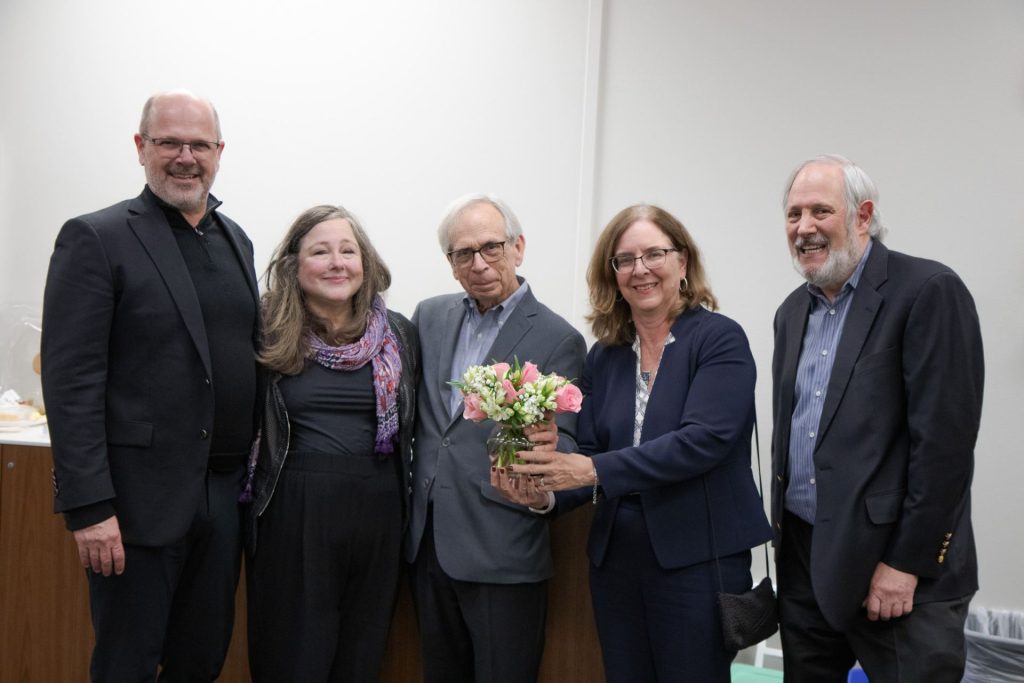
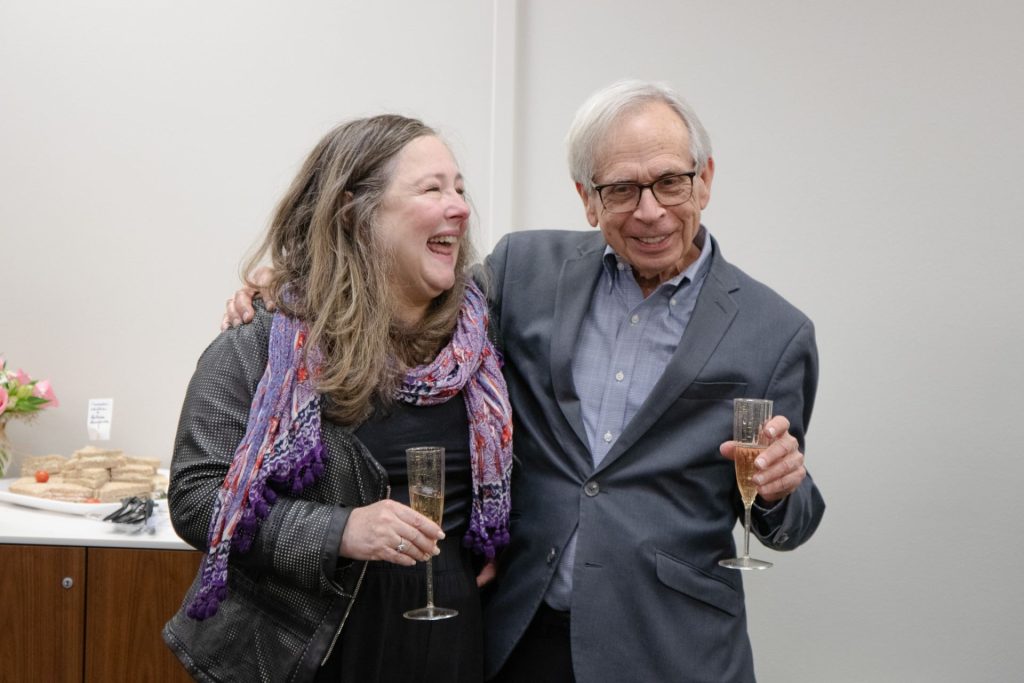
The Center for Asian Studies is an academic research hub led by Dr. Dennis M. Kratz, Ignacy and Celina Rockover Professor of Humanities in The Bass School at UT Dallas. “Dr. Divakaruni’s words,” Dr. Kratz said, “eloquently expressed the larger goal of the Center that, beneath cultural and political differences resides a shared humanity that is the ultimate goal of universities to nurture.”
The Center offers research, educational, and outreach opportunities for community members to extend their knowledge of Asia and Asian American achievements across the spectrum of human endeavor. Its activities complement those of the Crow Museum of Asian Art and share its ambition to make UT Dallas a vibrant and internationally respected hub for the study of and engagement with Asia and Asian America.
As CAS Scholar-In-Residence and University of Guanajuato Professor Dr. Tirtha Mukhopadhyay said at the lecture, “Dr. Kratz has created a most beautiful and intellectually rewarding space for scholars and artists here, like a temple for the arts and consciousness of Asia.”